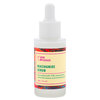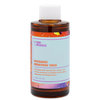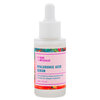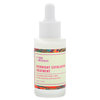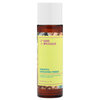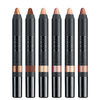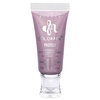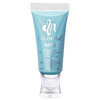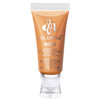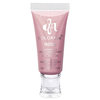
My eyes have always been slightly dry. They feel dusty in the morning when I wake up, and turn red the instant I get something in them, which, when you have a rabbit who sheds, means they always have something in them. It also takes about an hour for my eyes to turn white again after a shower, and I worry that people at work think I’m stoned. A few years ago, when looking at my red eyes in the mirror, I had an idea: DUH. I could just use Visine in the morning after my shower. Every morning.
It worked great for awhile. I started carrying Visine in my purse and using it whenever my eyes felt dry at work, or whenever redness set in. I couldn’t believe I’d never noticed just how often my eyes were red! It was way more than I’d realized. Thank god for Visine, I thought.
Until...Visine didn’t work for me anymore. I bought the strongest kind I could find—my eyes would whiten, then turn red again a few hours later. About this time, I went to my optometrist to get my prescription checked. During the exam, I casually mentioned that my eyes were red all the time. My optometrist examined my eyes.
“Do you use redness-relieving eye-drops? Like Visine or Clear Eyes?” he asked.
I nodded. “Ohhhh yes. All the time.”
“You’re addicted to them. You need to stop using them immediately. Eye-drops like Visine actually make redness worse in the long run.”
“What? Seriously? Wait, but my eyes are so red.”
“They’re going to be red for a few weeks until they heal,” he said. “No more eye drops, okay Krista? Not even artificial tears. Not ever, not at all. Throw your Visine away. Your eyes will whiten normally if you leave them alone. But they’re going to be red for a little while while they get off the chemicals in Visine.”
I opened up my purse, pulled out the tiny Visine bottle, and dropped it in the trash can ceremoniously. He smiled. “Good. Don’t let me see you with that crap again.”
After two weeks of explaining my chronically red eyes to everyone, my eyes healed. I haven’t needed to use drops since.
But was it just me? I see all my friends carrying Visine and Clear Eyes and cute little bottles of Rohto (a newer, extra-refreshing-feeling eye drop), and I wondered, if almost everyone uses eye-drops: are they helping or hurting?
Dr. Rajesh Khanna M.D., a doctor passionate about eye care with a book out called The Miracle of Pi in Eye with a chapter dedicated to dry eyes, sets the record straight here.
How Eye Drops Work...And The Side Effects
Dr. Khanna says that redness-relieving eye-drops can actually cause more harm than good. “Visine’s main chemical is a vasoconstrictor, which will constrict blood flow in the outer blood vessels of the eye. Every time you use it, the blood vessels constrict, but when you stop using it, the blood rebounds. It’s a vicious cycle.” And it gets worse—you can get addicted to eye drops. “These products are being driven by marketing,” says Dr. Khanna. It turns out there are two types of tears in the eyes: basal and reflex. He explains further: “There’s a pump in the eye called the lacrimal pump, which produces basal tears 24/7—these flow across the eye, where the lid spreads the tears like windshield wipers. These are the tears you need all the time. In order to have healthier eyes, we need to improve the amount of basal tears. The other type of tear is the reflex tear, which we get when our eyes react to something, like wind striking the eye. This new eye-drop, Rohto, which gives a very cool, refreshing feeling—that feeling is happening because the ingredients in Rohto are irritating the eye, causing lots of reflex tears very suddenly.”
Should You Ever Use Eye Drops?
When I posed the question to him, he replied “Only if you’re going on national TV and you don’t want to appear drunk.” So no. In Dr. Khanna’s eyes, you just shouldn’t use them. That goes for those who wear contacts and/or always have dry eyes. It’s worth noting that Khanna isn’t a fan of contacts for eye health, in general. “Because contact lenses are a foreign body in the eye, they move and irritate the eye every time you blink. There are a lot of incidents of infection resulting from contacts,” he explains.
So What Can You Do To Fight Redness and Irritation?
Whether you wear contacts or not—everyone can benefit from some simple eye care. Try to minimize the amount of wind that hits your eyes, and don’t sit in front of air conditioners. At the end of the day, splash cool water over the eyes to help wash away any irritants. “That alone can take care of a lot of allergens causing redness,” says Dr. Khanna. And because the cells in the eyes are constantly being replaced, it’s important to keep a healthy diet. “Try to eat lots of green, leafy vegetables, kale, almonds, carrots—lots of beta-carotene rich fruits and vegetables,” explains Dr. Khanna. And if your eyes continue to stay red and dry for weeks at a time, Dr. Khanna suggests seeing a cornea-trained doctor who knows how to treat dry eyes.
Photo: SelectStock
You Might Also Like
-
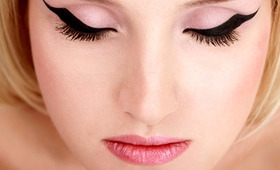
Makeup Brushes
Which Eye Liner Brush Is Right for You?
- 1920
-
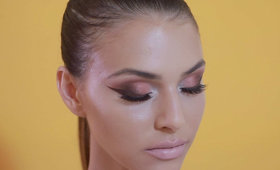
Makeup Tutorials
The Sunset Palette Series: Sophia Loren Makeup
- 16
-
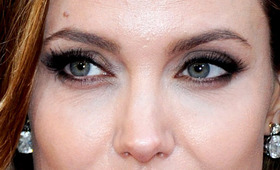
Eyes
What’s Your Eye Shape?
- 1129
-
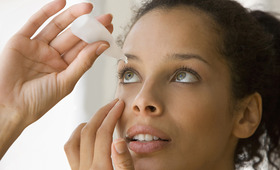
Eyes
Over The Counter Eye Drops: Refreshing Or Bad For Eyes?
- 277
-
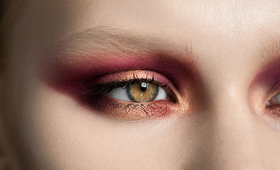
Eye Shadow
6 Looks to Create with Natasha Denona’s Star Palette
- 128
-
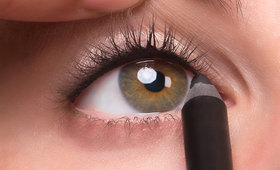
Tutorials
How to Tightline Eyes
- 4197
-
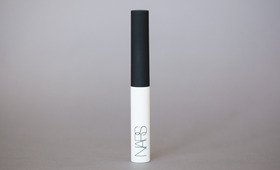
Eyes
Prime Time! How To Find The Best Eye Shadow Primer For You
- 1179
-
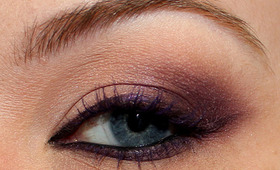
Smoky Eye
Fall Makeup Inspiration
- 130



